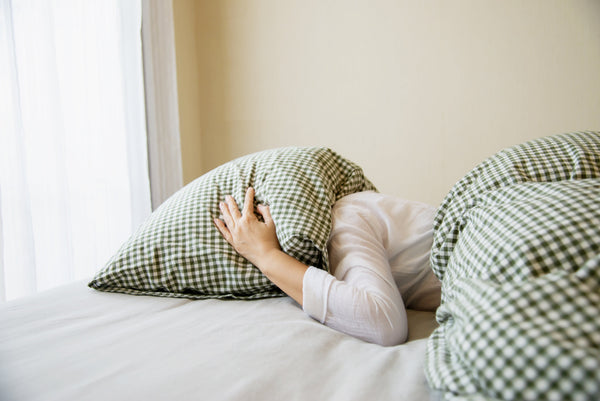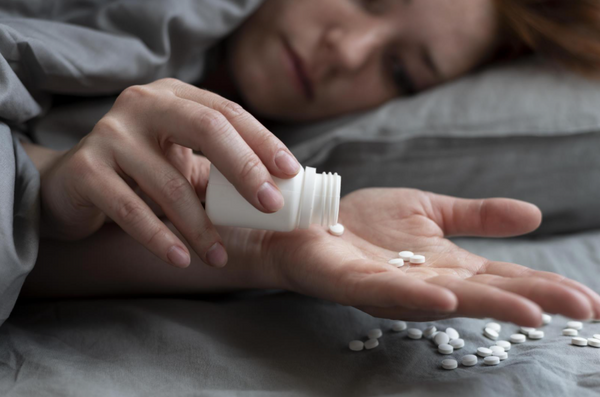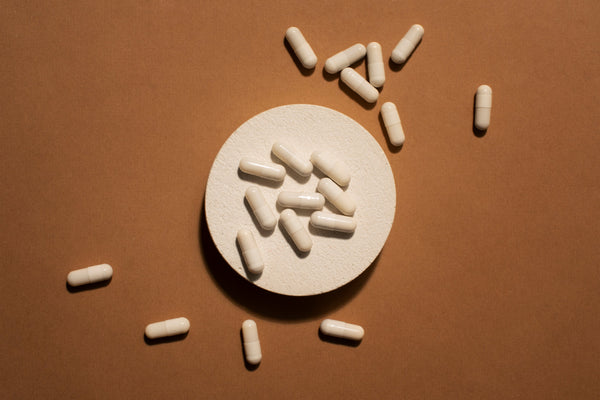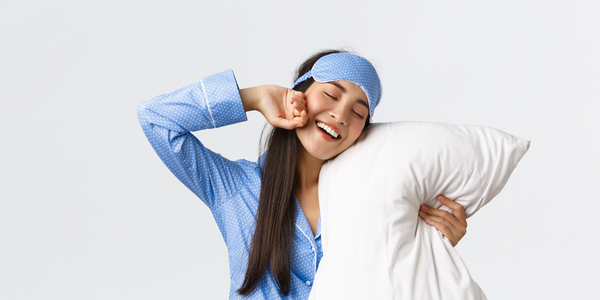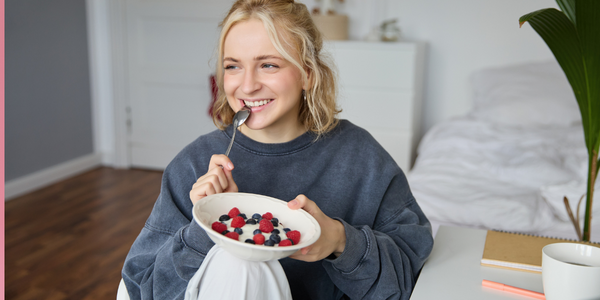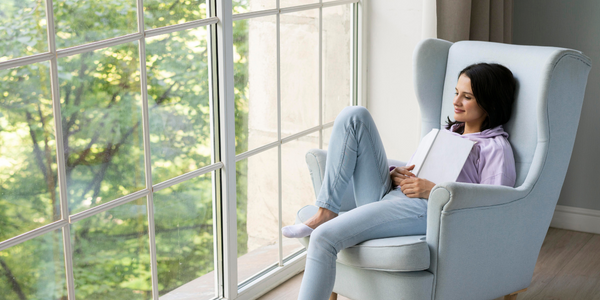With our cabinets cluttered with skin care products and our mornings filled with beauty routines, skin is something that gets attention from all corners...except maybe one - and that is sleep. Do you know that there are benefits of sleep for skin? What if we told you that the secret to good skin is simply getting that nap or a good night of sleep - and sorting one can benefit another! Turns out beauty sleep is not a myth! In this article, we discuss how sleep can have a positive impact on our skin.
As per research, a poor night of sleep can leave you with swollen eyes, droopy eyelids, dark circles around your eyes, paleness in your skin, and wrinkles and fine lines with age. It can also cause droopy corners around your mouth. Another test study suggested that sleep restriction can also have a negative overall perception of who they are - it can lead to lower perceived attractiveness and trustworthiness and does not take long for an overnight issue to become a prolonged sleep disorder. Below we will be taking a look at the various benefits of sleep for skin.
But before that...
Sleep and Skin: What’s the Relation?
To understand how sleep affects skin, one needs to first understand that our body essentially repairs itself when it goes into sleep mode. This does not just hold true for your muscles and brain, but also for your epidermis - the blood flow to your skin increases when you're sleeping and helps in rebuilding collagen and repairing UV damage. The sheets that you use when you’re sleeping can also play a role in determining your skin health as it comes in contact to your skin for a long period of time.
Many people also wonder what is the best time to sleep for skin. The answer to the question is that one should try to hit the bed between 9 and 11 PM, as that helps make sure you get enough sleep till the time you wake up in the morning. It is also a good time to sleep as our body is away from natural light at that time.
How to Get the Benefits of Sleep for Skin
There are many ways in which sleep can be beneficial for skin, let’s take a look at them.
Get the recommended amount of sleep at night
For overall good skin and health, getting the recommended amount of sleep is of primary concern. Poor sleep can leave your skin dull, aging faster, and prone to a number of environmental stressors. An average sleep of 7-9 hours is what is ideally called a good night’s sleep.

Wash your face before hitting the bed at night
Going to sleep without washing your face can leave dirt on it and affect the appearance of your skin. It is of utmost importance to wash your face before you go to bed - comparatively more important than washing your face in the morning. This is essential because at night before you go to sleep, there should be no dirt, makeup, or extra deposition of oil on your face. This can lead to the clogging of your pores and cause irritation on your skin, causing damage overnight - dry skin, large pores, rashes, and acne breakout are just a few of them.

Apply moisturizer to your face before sleeping
Wash your face, dry it out, and then apply a night cream or moisturizer on it - to prevent your skin from dehydrating. For the same reason, you should also drink enough water.
For this, you do not have to buy the fanciest of products, but a simple thick cream can do the job beautifully. You can also use petroleum jelly along with your regular moisturizer to use as a night cream as it helps in locking the moisture in your skin.

Try sleeping on your back
As we spend one third of our day sleeping, it is important that we pay attention to the sheets and pillows that we are using. Sleeping on a rough surface can cause irritation and compression to your face - resulting in early signs of wrinkling. You can either try sleeping on your back to avoid touching surfaces or use a satin or silk sheet to minimize irritation.

Elevate your head while sleeping
Elevating your head while sleeping is known to help with acidity, nasal drip, snoring and various other conditions, but what many people don’t know is that it can also be helpful for your beauty sleep. How? Well, our overall health directly impacts our skin, especially issues related to digestion. Elevating your head while sleeping can also improve the blood flow, preventing blood from pooling up and thereby reducing dark circles and eye bags. You can use an extra pillow or add a wedge to your mattress to elevate your head a few inches.
Sleep away from the Sun
Last but not the least, try sleeping away from the sun and in the dark. Leaving your skin exposed to the sun while you sleep or nap can cause damage to your skin appearance - it also disturbs your sleep cycle or rhythm leaving you with less beauty sleep. You can opt for blackout curtains by your bedroom window to make sure that the sun does not enter directly into your room and onto your face.
To sum it up, embracing a healthy sleep cycle is not only beneficial for your overall health and wellbeing, but it is also good for your skin health. If you suffer from sleep disturbances, then you can try sleep supplements that contain melatonin, l-theanine, and other sleep inducing ingredients. You can also try having chamomile tea if you want to better sleep at night. Good sleep makes your skin glow, look younger and beautiful, and at the same time manages your mood and body.
Meanwhile, if you wish to boost your skin health inside out, you can try out Wellbeing Nutrition's Skin Fuel - India's First US Dermatologist Formulated Drinkable Skincare. Made using naturally derived, widely researched ingredients - L–glutathione, hyaluronic acid, Japanese collagen, and other essential vitamins, this delicious blueberry mint skin elixir will keep your skin youthful, supple and glowing.
References:
- Axelsson J, Sundelin T, Ingre M, Van Someren EJ, Olsson A, Lekander M. Beauty sleep: experimental study on the perceived health and attractiveness of sleep deprived people. BMJ. 2010 Dec 14;341:c6614. doi: 10.1136/bmj.c6614. PMID: 21156746; PMCID: PMC3001961. (https://pubmed.ncbi.nlm.nih.gov/21156746/)
- Axelsson J, Sundelin T, Ingre M, Van Someren E J W, Olsson A, Lekander M et al. Beauty sleep: experimental study on the perceived health and attractiveness of sleep deprived people BMJ 2010; 341 :c6614 doi:10.1136/bmj.c6614. (https://www.bmj.com/content/341/bmj.c6614)
- Oyetakin-White P, Suggs A, Koo B, Matsui MS, Yarosh D, Cooper KD, Baron ED. Does poor sleep quality affect skin ageing? Clin Exp Dermatol. 2015 Jan;40(1):17-22. doi: 10.1111/ced.12455. Epub 2014 Sep 30. PMID: 25266053. (https://pubmed.ncbi.nlm.nih.gov/25266053/)
- Clatici VG, Racoceanu D, Dalle C, et al. Perceived Age and Life Style. The Specific Contributions of Seven Factors Involved in Health and Beauty. Maedica (Bucur). 2017;12(3):191-201. (https://www.ncbi.nlm.nih.gov/pmc/articles/PMC5706759/)
- Sleep and Dermatology, Camila Hirotsu, Rachel Gimenes, Rodrigues Albuquerque, Sergio Tufik, Monica Andersen, October 2016, DOI:10.1201/9781315366340-21, In book: Synopsis of Sleep Medicine (pp.353-362)Chapter: 20Publisher: Apple Academic PressEditors: S. R. Pandi-Perumal. (https://www.researchgate.net/publication/309613726_Sleep_and_Dermatology)
- Light and Sleep, Sleep Foundation. (https://www.sleepfoundation.org/bedroom-environment/light-and-sleep)













